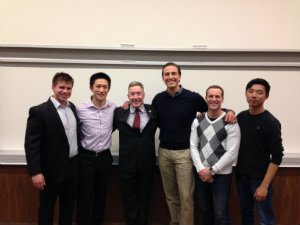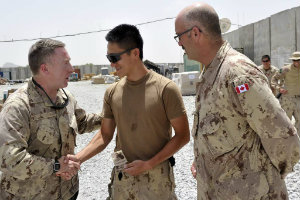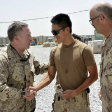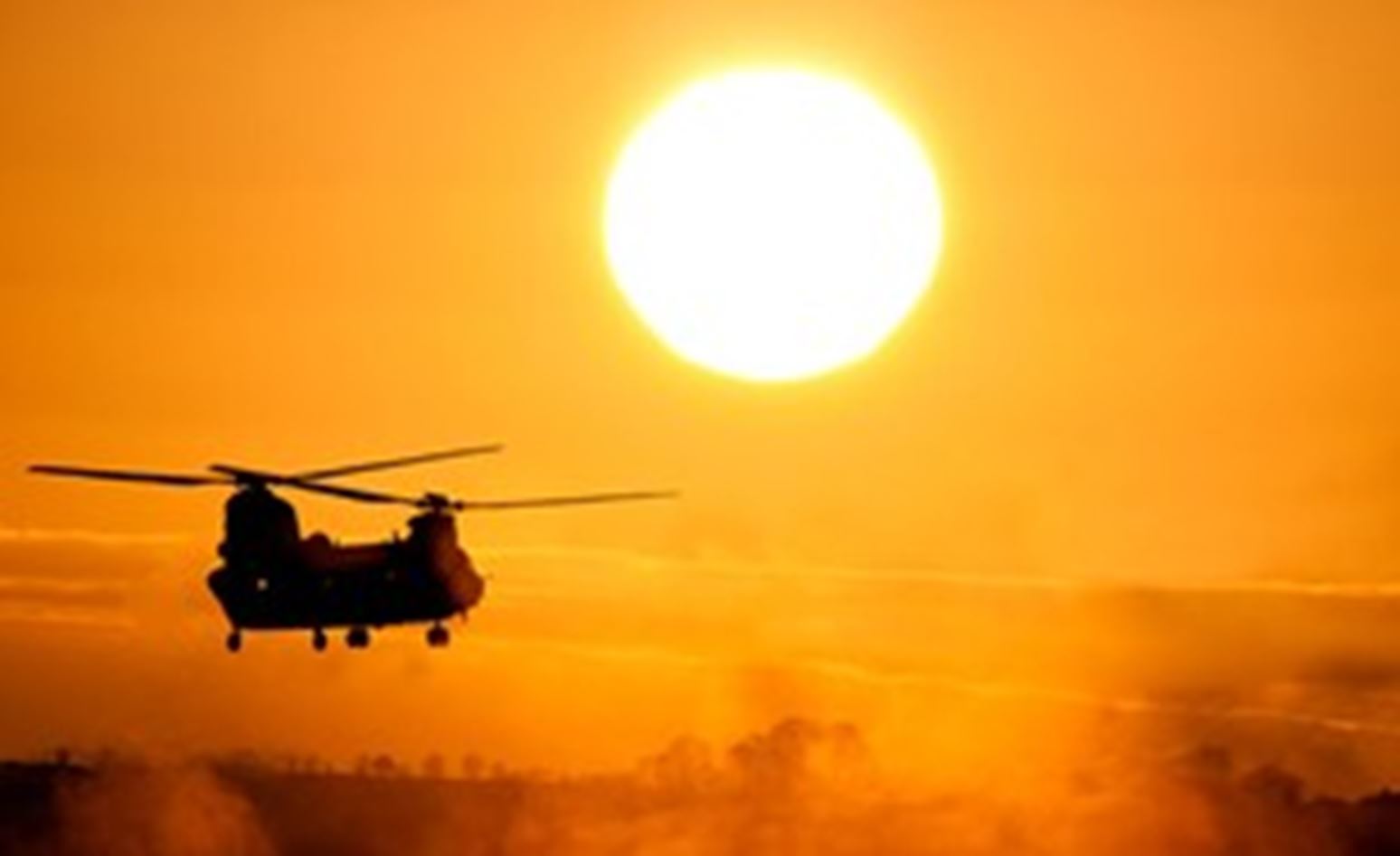Lieutenant-General (retired) Peter Devlin was the Commander of the Canadian Army. He retired in the summer of 2013 after 35 years in uniform. Peter now serves as the president of Fanshawe College in London, Ontario and graciously took time to provide a capstone talk to the graduating MBA class at Ivey.
While the audience excitedly listened to his opening words, few could have guessed his first statement: leaders model wholesome family values. Organizations and the people that work for them seek these values and successful leaders must embody them. Furthermore, leaders must understand that organizations crave leadership. New graduates must never cloud themselves with the idea that their new teams do not seek their guidance - it's why leaders exist.

Bryan McCulloch, Lu Li, Peter Devlin, Chad Hauser, Rich Hilsden, Kevin Yu
Teams are built with adversity. While Peter admits it is easier to introduce physical and mental adversity in the military, true leaders will find creative ways to introduce it within their teams. When pressed by Peter, a graduating student admitted that even a simple weekly basketball game was where his last team found their bonding moments of adversity. Leaders need to find these moments.
Leading is about people - you can't lead "stuff" ... you lead people. Respect people. Know your people; their likes and dislikes; and their dreams and aspirations. Leaders get to know their people in unique ways. Peter gets to know his staff by taking note of what makes them unique - maybe a plaque or memento in an office or maybe a special pin on a shirt.
Be proud and communicate through words that evoke emotion in your people. Leaders are optimistic and radiate promise. Organizations need their leaders to focus on tomorrow - develop a vision and then guide the team to the vision through thick and thin. This often means effecting change, building momentum, and encouraging risk. Only then do leaders give their people the confidence to surmount difficult tasks and challenges.
In the end, leaders make decisions. The military is portrayed (incorrectly) as a top-down organization. In fact, the military is very similar to every organization where leaders must involve the entire team's participation, whenever possible. But in the end, the leader must make a decision. The team respects that decision via the relationships their leader builds with them. The power of relationships are developed with trust; and trust is given by the leader first. The task is then to get that trust in return from the team.

LGen Peter Devlin CMM, MSC, CD; Captain Lu Li; CWO Giovanni Moretti MMM, CD
Know that, as a leader, you inspire courage; that you are scrutinized by your team from when you order a coffee to every other moment when you think no one's watching. Only then, the team has the courage to have those difficult talks about work performance, and the courage to stand up for what's right. In the words of a leader who has lived a lifetime by these thoughts: "Plan ahead. Do what you love. Be yourself."
 About the Author
About the Author
Lu Li is an MBA student in the class of 2014. Before coming to Ivey, he attended the Royal Military College of Canada and served as an officer with the Royal Canadian Engineers, Canadian Army. He served overseas in Kandahar, Afghanistan in 2011.
